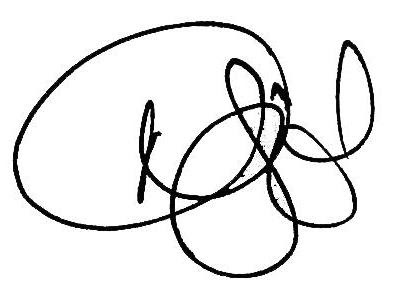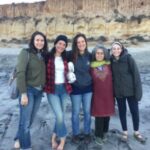by Nigel Savage
Thursday, January 25, 2018 | 9 Shevat 5778
Dear All,
I and we struggle to explain what Hazon is and why we do the things we do. Partly this is our fault, and we must try to fix that; we’re working on it at the moment.
But partly this is not our fault. The boxes we all use for different categories of contemporary life are faulty, in my view. When people think of “environmental sustainability” they think fairly immediately about any or all of – eg – recycling; composting; solar power; clean tech; climate change; and so on.
These are important things, and as an organization, directly or indirectly, we work on them. This month we welcomed another 10 organizations into Hazon’s Seal of Sustainability, taking us now to 60. In Michigan this week 20 clergy, executive directors and layleaders from 12 of our 13 Seal sites came together to share progress and best practice – a phenomenal day. Nearly all have taken major steps towards robust recycling, energy and food projects, plus a number of outdoor environmental projects. Deeply gratifying. Our medium-term goal is to have at least 360 organizations in the Hazon Seal, by the end of the current shmita cycle in September 2022. By the end of the next full shmita cycle, in 2029, we hope that environmental sustainability will be deeply integrated into the fabric of American Jewish life – and we hope and intend to have impact beyond the bounds of the Jewish community, as well.
But I reiterate that these frames and these measures are only a piece of what “sustainability” means, and maybe not even the most important part.
The far deeper question – before and beyond these practical issues – is about how we self-organize ourselves; we the 7,598,068,962 people (plus or minus) living on this planet right now.
This week Judith and Rebecca and Shamu were at the Jewish Community Farming gathering, at the Leichtag Commons in Encinitas, where they met with other leaders of Jewish farming organizations to identify how to best grow this field and movement (see the lead photo above). I was (unexpectedly) in North Manchester, visiting my father, who took a turn for the worse over the weekend.
My Dad has late-stage Alzheimer’s, and he’s living at Heathlands, which is described on its website as “a large care home for older people.” Trust me: describing Heathlands like this is like saying that Frank Sinatra was a singer or that Meryl Streep can act. My Bobbie and Zaydie, my Auntie Jean, my Grandma, my great-uncle Hymie – all lived at Heathlands before they died. My Auntie Ethel is there right now, as well as my dad. It is not just that the staff there are amazing, though they are indeed exceptional; it is also that Heathlands is a node – a very significant node – in the north Manchester Jewish community.
Which is to say: everyone knows everyone, or knew everyone, or lived next door to someone’s grandma, or was in school with this one, or dated that one, or had a business with her, or a broigus with him. I can’t begin to describe what it feels like going back to Manchester after living in New York for 17 years. On the one hand, when I was a kid, I found Manchester thoroughly claustrophobic, and many of my friends indeed ended up in North London (now essentially the northernmost part of Jewish Manchester) or in Israel or elsewhere. So I don’t want to over-romanticize Manchester and, indeed, I could live there now if I chose to – and I don’t.
And yet; and yet. There is something we lose in globalization and mobility. And getting on planes. And going to college here and grad school there and so on.
And that’s how I loop back to Hakhel, and Kenissa, and the Jewish Community Farming gathering. Living “sustainably” means we do have to reduce our carbon footprints, and that in turn needs action individually, communally and governmentally. Hazon tries to work at all these levels, and we will continue to.
But it means, also, that we have to strengthen communities, in multiple ways.
I have the highest respect for the professionals and layleaders who are working to reinvigorate the several thousand institutions of surburban Jewish life. They evolved over two or three generations and their renewal will be important in the next few decades.
But seeking merely to strengthen them will be insufficient, as vital as it is, because they don’t sufficiently deeply address the psychic needs of a growing number of people. We also need to reimagine community, and the kinds of communities we have. We need co-housing, urban farms, new kehillot, new collectives, new experiments in community; we need intentional community and new forms of senior housing, new experiments in collective homeschooling, new ageing in place, new multigenerational communities, new time shares, further experiments in co-working spaces, revived rural communities, new mixed-use spaces. And so on.
We need these things for two reasons, and each one of them is important in and of itself, and the two together are deeply compelling. One reason is that – yes – we don’t all need a big house and three cars and two dishwashers, and living in communities that enable us to reduce our footprint without significantly lowering our standard of living – that’s pretty important for the world, in and of itself.
And yet – in fact – that’s only the second reason for these things. The first is about the transition from pre-modern to modern and now to postmodern societies. Pre-modern living lacked sanitation and hygiene and modern drugs and healthcare; and it was probably sexist and homophobic also. So I don’t over-idealize it. But at their best, pre-modern communities offered human connection and support across every age of life. And that’s what modernity blew up. And we traded those things for suburbia and our own front yard and backyard and our own car, and a certain kind of privacy – you won’t tell me what to do, and I won’t tell you.
And that turns out to be deeply alienating, in many ways. And cities can be alienating too; you can be lonely in a big city.
So that’s why we’re seeing an early proliferation and exploration in new modes of community. This is vital for the Jewish community, vital for America and vital for the world.
And it is why Hazon – imperfectly, both in how we do it and how we language it – is doing our level best to support and network and catalyze many of these new experiments in Jewish life. It’s why, in addition to Isabella Freedman and Adamah and Teva and JOFEE Fellows and Makom Hadash and the work we’re doing in Michigan and Colorado and elsewhere – it’s why, above and beyond this, we are trying to grow what we do in relation to emerging communities. It’s fuzzy and complicated but it’s vital. If we’re in any way serious about living more healthily and more sustainably then this is where a chunk of our time, energy, innovation and money needs to direct itself.
It’s also, by the way, one of the reasons for our continuing efforts to connect American Jews with experiments in sustainability in Israel. Israel enters the headlines, day after day, in relation to “the occupation” and “Israel/Palestine.” These issues are not unimportant, and we seek to address them and engage with them in parts of our work. But they’re not the only prism through which to understand Israel. Israel is (a) one of the places of highest human density in the world, and thus (b) a place where people need to – and do – live with a smaller footprint than people in the US, and as it happens (c) rhythms of community are far stronger in Israel – and Palestine – than in the US, and finally (d) the range and scale of experiments in intentional community (under the radar) in Israel is utterly astonishing.
So all of this is why we do what we do – the wide and full range of things that we do. For nearly 18 years we’ve been a lab for much that is vital at the front-edge of Jewish life, and as the world seems to get crazier around us, it is more critical than ever that we grow all that we do.
And so it’s why I’m proud now, on the eve of Tu B’Shvat, to announce this significant expansion of Hakhel.
Hakhel is the first-of-its-kind Jewish Intentional Communities incubator in North America (and beyond). It exists to amplify and strengthen new expressions of Jewish community across the world. We were seed-funded by UJA-Federation of New York, and we now have significant support from Israel’s Ministry of Diaspora Affairs. We hope to invest, both directly and indirectly, in a wide range of new initiatives and experiments in Jewish community. Some will involve living together; some will not. But in aggregate we want to encourage and nourish greater health and sustainability. And where possible, we hope to learn from some of the remarkable experiments in sustainable and intentional communities that have grown dramatically in Israel in the last two or three decades. The program encompasses a communities incubator, consulting, our annual Jewish Intentional Communities Conference (a partnership with Pearlstone) and a trip to Israel. We hope to expand this year to 30 communities, of whom 20 have already been selected (including six in Europe; this weekend we partnered with Lavi Olami on a seminar in Vienna for the first central European communities in our cohort.)
In the box below my signature there’s more info on Hakhel and on the RFP for young or emerging communities – or even ideas for a little community; you and some friends – that you can apply to, by February 25th. So check that out, and email hakhel@hazon.org if you have questions.
For now: it’s Tu b’Shvat next week. This is our annual reminder to treasure the natural world that sustains us. The best way to do that is by living in ways that are kind and human and conscious. So I want to thank all the farmers who feed us. I thank all the people out there who care for people with Alzheimer’s. I thank all the rabbis who minister to us. I thank all the people who give time and energy to communal institutions, local ones especially. I thank all the people who gave time and money to found the schools and homes and synagogues that we take for granted.
May we be blessed to live healthily and sustainably and well.
Shabbat shalom, Tu B’Shvat sameach,

Nigel
